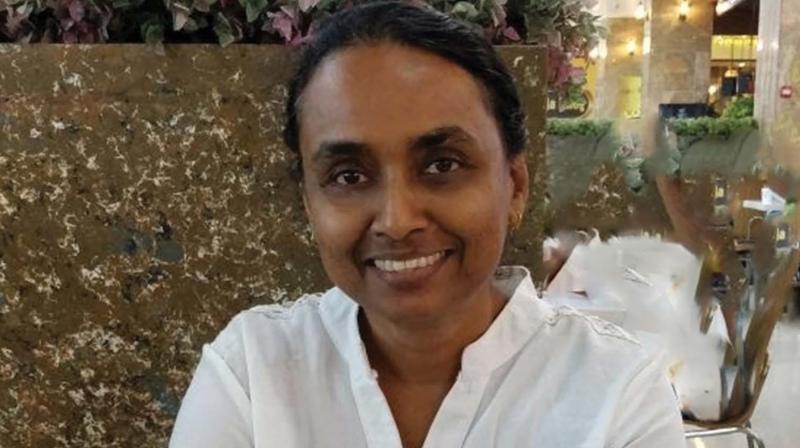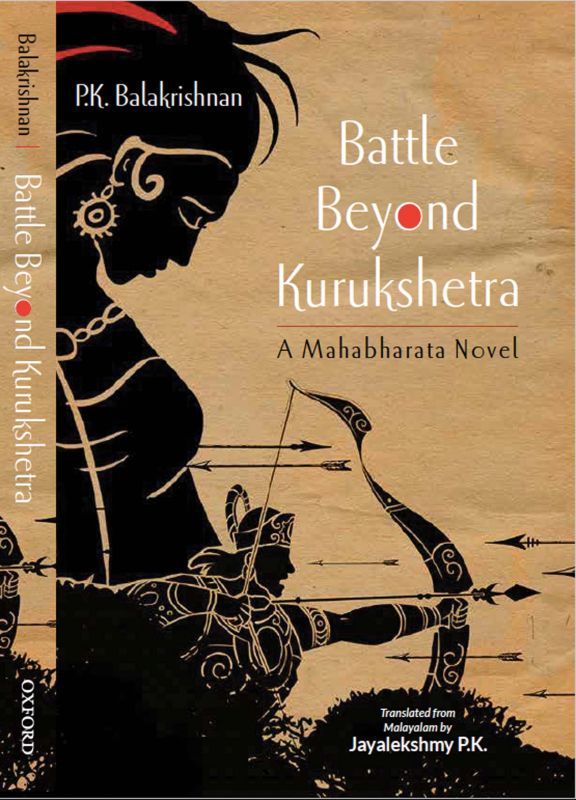Translating a legacy
Nearly 20 years after his passing away, Jayalekshmy P.K. brought out Battle beyond Kurukshetra.

Jayalekshmy P.K., daughter of noted author P.K. Balakrishnan, has brought out Battle beyond Kurukshetra, the English translation of her dad’s Ini Njan Urangatte, two decades after it hit bookstores
Jayalekshmy remembers the first translation of her dad’s most famous book — Ini Njan Urangatte. K.C. Sarasamma had brought it home one day, and called it ‘And Now Let Me Sleep’. But as the author’s daughter, she wanted to capture what P.K. Balakrishnan wrote, with not just the right words in English but also the right idea. Nearly 20 years after his passing away, Jayalekshmy P.K. brought out Battle beyond Kurukshetra.
“People asked me why don’t I try translating something else. But I felt that I should put effort on what I considered his best,” Jayalekshmy says. The book begins at the end of the Kurukshetra War. Yudhishtira has just learnt that Karna, the much-hated enemy the Pandavas had killed, was in fact his brother. Draupadi, annoyed by his sudden guilt, muses through the book, learning more and more about the once-hated Karna who had laughed at her disrobing. Somewhere, the reader feels her feelings change — she, the wife of all the Pandava brothers, might have been Karna’s wife too had he accepted the offer to come and be the eldest son who could rule the kingdom.

It is a book Jayalekshmy had read three or four times in high school, she knew it so well. But when she began the translation work in 2002, a friend said ‘it is quite bad’, Jayalekshmy says, laughing. “I asked her after sending two or three chapters, how much she would rate it on 100. And she said a 20! So I asked her to send back with corrections. And when she did, I found it practically the same. I felt I am not that bad.”
But it took Jayalekshmy a lot of time, having had a full-time job back then, and also the work at home. “I was never in a hurry to finish it off. Then my husband got a posting in the UK and I took leave for a few months. That’s when I had time to exclusively write,” she says. What she found most difficult was to get ‘that music in the language’ that her dad had used, the poetic flow of his words. “It is a three part job — getting the words right, the poetic sound, and then the idea.” What she really enjoyed writing was the third chapter when Bheema talks to Yudhishtira and also the ending when the sleep-deprived Draupadi finally says, ‘Yudhishtira, let me sleep’. Those were relatively easier to write.
“The translation has to stand on its own,” Jayalekshmy says. She was surprised that her dad could understand what Draupadi went through so well. “He was never a feminine or a soft person. He was also not a believer. But the book required that it doesn’t come up. And at no point does it come up.” She too is not a believer, she admits. She might write more, but she doesn’t appear too pleased with her writing. “I do write good letters,” she says, laughing. But then obviously the Balakrishnan gene has passed on. Jayalekshmy, unknown to herself, has a beautiful way with words.
